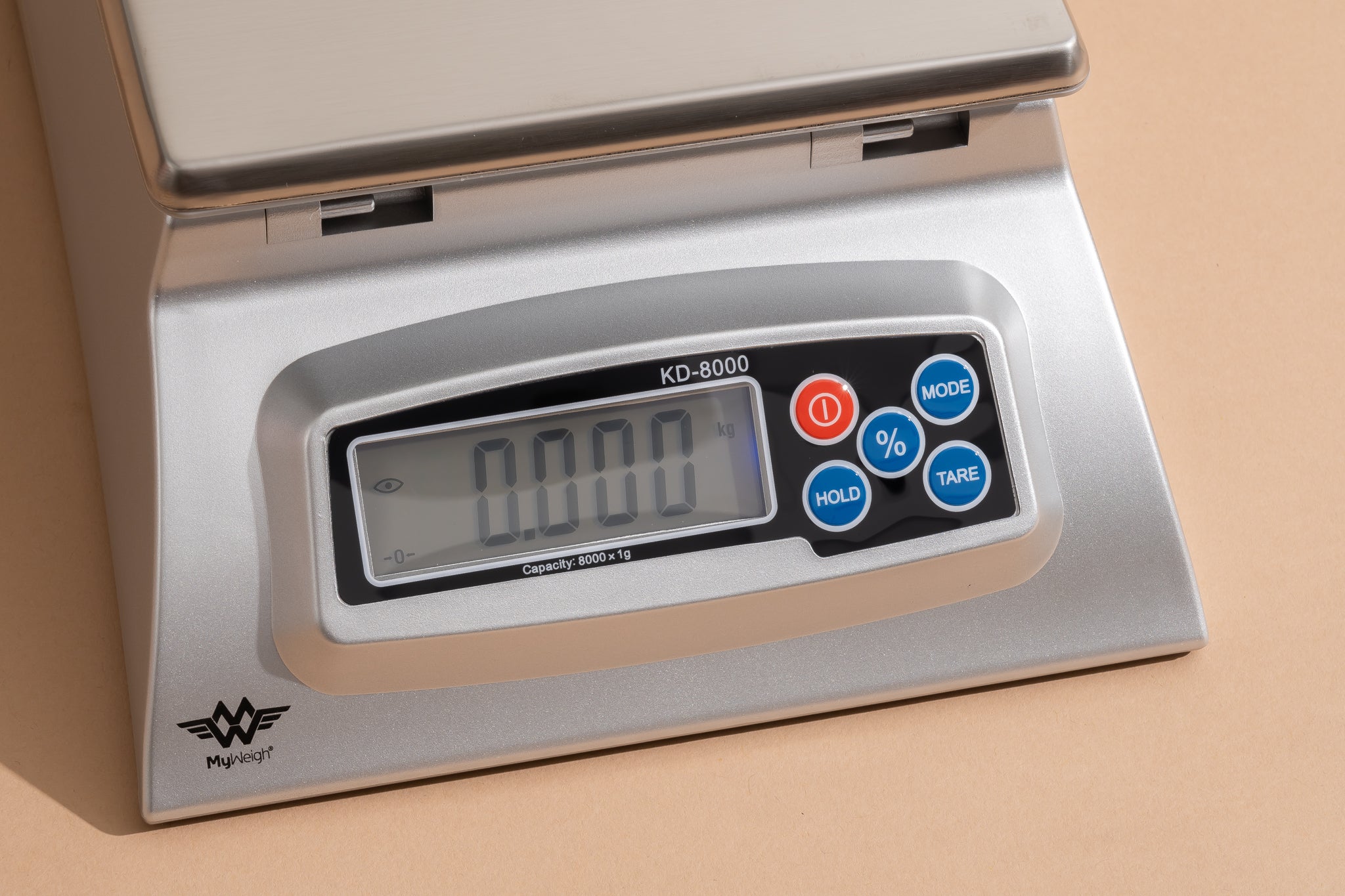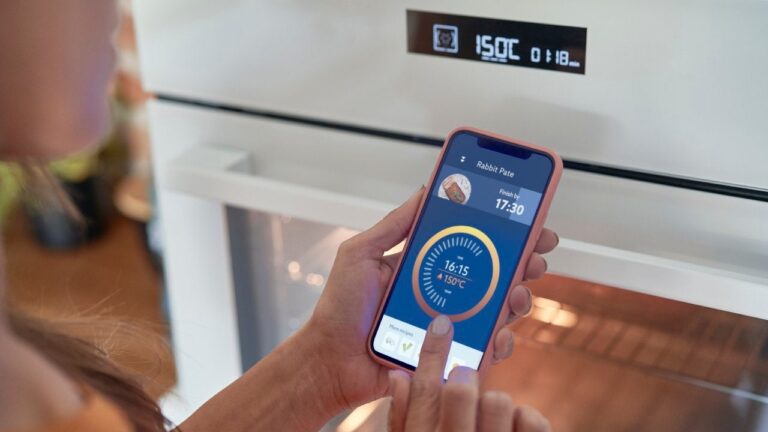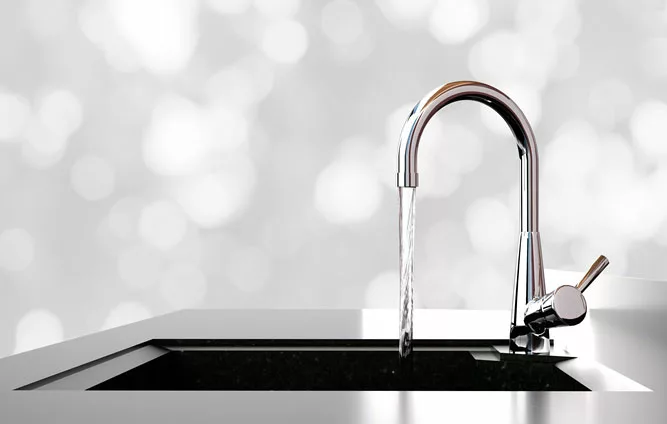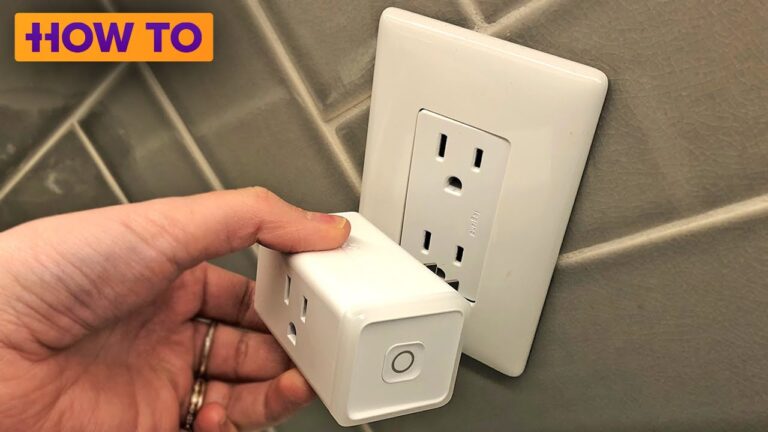Maintaining a balanced diet is essential for a healthy lifestyle, and portion control plays a crucial role in achieving this balance. Whether you’re trying to lose weight, manage a health condition, or simply eat more mindfully, understanding portion sizes can make a significant difference. However, accurately measuring portions can be challenging without the right tools. This is where smart kitchen scales come into play. These devices offer precision, convenience, and the ability to track nutritional information, making portion control more manageable and effective.
In this article, we’ll explore the world of smart kitchen scales, their benefits, how to choose the right one, and how they can help you achieve your dietary goals.
Understanding Smart Kitchen Scales
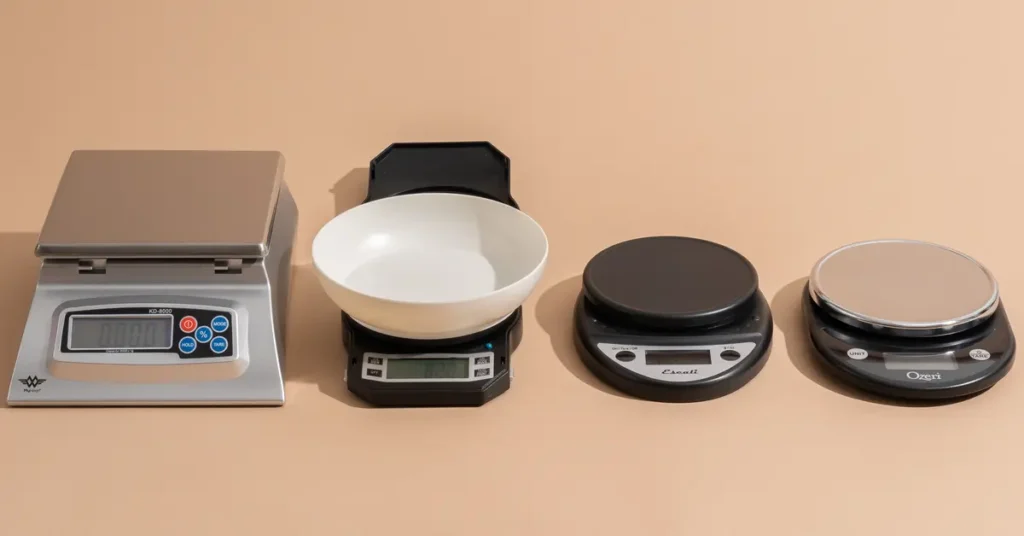
What Are Smart Kitchen Scales?
Smart kitchen scales are advanced versions of traditional kitchen scales that are equipped with digital features. These scales are designed not only to measure the weight of food accurately but also to connect to smartphones or tablets via Bluetooth or Wi-Fi. This connectivity allows the scales to sync with companion apps, which can provide detailed nutritional information, track your food intake, and even suggest recipes.
Unlike traditional scales, which only measure weight, smart kitchen scales often come with additional features such as the ability to calculate calories, fats, proteins, and other nutrients based on the food’s weight. This makes them an invaluable tool for anyone serious about portion control and nutrition.
Key Features of Smart Kitchen Scales
Smart kitchen scales come with various features that set them apart from traditional scales. Some of the most common features include:
- Digital Display: Provides precise measurements, often down to the gram or ounce, ensuring accuracy in portion control.
- Connectivity: Bluetooth or Wi-Fi connectivity allows the scale to sync with health and diet apps, enabling you to track your food intake in real-time.
- Nutritional Database: Many smart scales come with a built-in or app-based nutritional database that includes thousands of foods, making it easy to calculate the nutritional content of what you’re eating.
- Tare Function: This function allows you to zero out the scale after placing a container on it, making it easy to measure multiple ingredients in one bowl without the need for separate measurements.
- App Integration: Compatibility with popular health apps like MyFitnessPal, Fitbit, and others, helping you integrate your dietary tracking with your overall health and fitness regimen.
These features make smart kitchen scales not only more accurate but also more versatile and useful for those who are focused on maintaining a healthy diet.
Benefits of Using Smart Kitchen Scales for Portion Control
Accuracy in Measuring Portions
One of the primary benefits of using a smart kitchen scale is the accuracy it provides. When it comes to portion control, even small discrepancies in measurement can lead to significant differences in calorie intake. Traditional methods, like using measuring cups or estimating by eye, can be imprecise and lead to overeating or undereating.
Smart kitchen scales eliminate this guesswork by providing exact measurements. Whether you’re weighing a piece of chicken breast or measuring out a serving of pasta, the scale gives you a precise weight, allowing you to control your portions accurately.
Tracking Nutritional Information
Another significant advantage of smart kitchen scales is their ability to track nutritional information. By connecting the scale to a companion app, you can log the weight of your food and receive detailed information about its nutritional content. This includes calories, macronutrients (proteins, fats, carbohydrates), and even micronutrients like vitamins and minerals.
This feature is particularly useful for people following specific diets, such as low-carb, ketogenic, or high-protein diets. It helps you stay within your dietary goals by providing real-time feedback on what you’re eating.
Ease of Use and Convenience
Smart kitchen scales are designed to be user-friendly, making portion control more convenient. The digital display is easy to read, and the connectivity to apps simplifies the process of logging and tracking your food intake. Many scales also come with pre-set modes that cater to different types of food, such as liquids or solids, further enhancing their convenience.
Moreover, because these scales can often save previous measurements and data, they reduce the need for repetitive calculations, saving you time and effort in the kitchen.
Integration with Health Apps
One of the standout features of smart kitchen scales is their integration with health and fitness apps. By syncing your scale with apps like MyFitnessPal or Fitbit, you can create a seamless system that tracks your dietary intake alongside your physical activity. This integration provides a comprehensive overview of your health, making it easier to manage your weight, monitor your progress, and adjust your diet as needed.
This connectivity also allows for more personalized nutrition plans, as the data collected by your smart scale can inform tailored recommendations from these apps, making your health management more precise and effective.
How to Choose the Right Smart Kitchen Scale
Considerations for Selecting a Smart Scale
When choosing a smart kitchen scale, there are several factors to consider to ensure you select the right one for your needs.
Measurement Precision
Precision is key when it comes to portion control. Look for a smart scale that offers highly accurate measurements, ideally down to the gram or fraction of an ounce. This level of precision is crucial, especially for those who need to adhere to strict dietary plans or are managing health conditions like diabetes.
App Compatibility
Not all smart kitchen scales are compatible with every health or diet app. Before purchasing, check whether the scale integrates with the apps you already use, such as MyFitnessPal, Fitbit, or others. Compatibility ensures that your data is easily accessible and can be synced across your devices, providing a streamlined experience.
Nutritional Database
A robust nutritional database is an essential feature for those serious about portion control. The more comprehensive the database, the more foods you can accurately measure and track. Some scales come with databases that include thousands of food items, while others allow you to add custom entries, making it easier to track unique or homemade dishes.
Design and Durability
The design and build quality of the scale are also important. Look for a scale that is easy to clean, with a durable surface that can withstand regular use. A sleek design that complements your kitchen’s aesthetics is a plus, but functionality should always come first.
Price and Warranty
Smart kitchen scales come in a range of prices, so it’s important to find one that fits your budget while still offering the features you need. Additionally, check the warranty offered by the manufacturer. A good warranty provides peace of mind, ensuring that you can rely on your scale for years to come.
Setting Up and Using a Smart Kitchen Scale for Portion Control
Unboxing and Setup
Setting up a smart kitchen scale is usually straightforward. After unboxing, the first step is to install the necessary batteries or charge the scale if it’s rechargeable. Next, download the companion app specified by the manufacturer, and follow the prompts to pair the scale with your smartphone or tablet.
Most scales will require you to connect via Bluetooth or Wi-Fi. Once connected, you can begin using the app to measure and track your food portions.
Using the Scale for Daily Meals
Using the smart scale for daily meals is simple. Place your food item on the scale, and the digital display will show the weight. If the scale is connected to an app, the weight will automatically sync, and you can log it along with nutritional information.
For mixed dishes or recipes with multiple ingredients, use the tare function to zero out the scale after adding each ingredient. This way, you can accurately measure each component of your meal without needing multiple bowls.
Tracking and Logging Meals
The companion app is where the smart scale truly shines. After weighing your food, the app allows you to log the item, automatically calculating its nutritional content based on its weight. Over time, this data accumulates, giving you a clear picture of your eating habits and helping you make informed dietary decisions.
You can also set goals within the app, such as calorie limits or macronutrient ratios, and track your progress toward these goals. This feature is particularly useful for those following specific dietary plans or working toward weight loss or muscle gain.
Tare Function and Measuring Multiple Ingredients
The tare function is a handy feature that allows you to measure multiple ingredients in the same container. Simply place the container on the scale, press the tare button to zero it out, and then add the first ingredient. After recording the weight, press tare again to reset the scale before adding the next ingredient.
This function simplifies the cooking process, reducing the need for multiple containers and making cleanup easier. It’s particularly useful for recipes that require precise measurements of several ingredients, such as baking.
Advanced Features and Tips for Maximizing Your Smart Kitchen Scale
Using Custom Food Entries
While most smart scales come with extensive nutritional databases, there may be times when you need to add custom food entries. This feature is especially useful for homemade dishes or specialty items that aren’t included in the pre-loaded database.
To add a custom entry, simply weigh the food item and manually input its nutritional information into the app. This entry will then be saved for future use, allowing you to track even the most unique foods accurately.
Utilizing Pre-set Modes
Many smart kitchen scales come with pre-set modes tailored to different types of measurements. For example, there might be a baking mode that focuses on dry ingredients or a liquid measurement mode that adjusts for the density of liquids. These modes optimize the scale’s performance based on what you’re measuring, ensuring greater accuracy.
By exploring and utilizing these pre-set modes, you can enhance your cooking experience and ensure that your measurements are as precise as possible, leading to better results in your recipes.
Setting and Achieving Portion Control Goals
One of the most powerful features of a smart kitchen scale is the ability to set and achieve portion control goals. Whether your goal is to lose weight, gain muscle, or simply maintain a balanced diet, the scale can help you stay on track.
Set your dietary goals in the app, and use the scale to measure your food portions according to these goals. Over time, you’ll develop a better understanding of portion sizes and how they relate to your overall dietary needs. This understanding will make it easier to maintain healthy eating habits in the long term.
Real-Life Applications and Success Stories
Case Studies of Effective Portion Control
Numerous individuals have successfully used smart kitchen scales to improve their portion control and overall health. For instance, some have reported significant weight loss after using a smart scale to track their calorie intake more accurately. Others have managed to control their blood sugar levels by precisely measuring their carbohydrate intake.
These success stories highlight the effectiveness of smart kitchen scales as tools for achieving specific dietary goals. By providing accurate measurements and detailed nutritional information, these scales empower users to make better food choices and take control of their health.
Using Smart Scales for Specific Diets
Smart kitchen scales are also invaluable for those following specific diets, such as the ketogenic diet, which requires precise tracking of macronutrients. By using the scale to measure portions and track the nutritional content of their food, individuals on these diets can ensure they stay within their target macronutrient ratios, leading to better adherence and results.
For those with dietary restrictions or allergies, smart scales can help ensure that meals are both safe and nutritionally balanced. By accurately measuring and tracking each ingredient, users can avoid allergens and ensure they meet their dietary needs.
Potential Challenges and How to Overcome Them
Common Issues with Smart Scales
While smart kitchen scales offer many benefits, they can also present challenges. Common issues include connectivity problems, where the scale fails to sync with the app, or battery life concerns, where the scale drains power quickly. Additionally, calibration issues can lead to inaccurate measurements if the scale is not properly set up.
Troubleshooting Tips
To overcome these challenges, start by ensuring that your scale and app are updated to the latest versions. For connectivity issues, try re-pairing the scale with your device or moving closer to your Wi-Fi router. If calibration is an issue, refer to the user manual for instructions on how to recalibrate the scale.
If these steps don’t resolve the problem, contacting customer support may be necessary. Most manufacturers offer support services that can help you troubleshoot and resolve any persistent issues.
Future Trends in Smart Kitchen Scales
Emerging Technologies
The technology behind smart kitchen scales is continually evolving. Future advancements may include integration with artificial intelligence, allowing the scale to provide personalized dietary recommendations based on your eating habits. Enhanced nutritional databases, with real-time updates and more detailed information, could also be on the horizon.
These emerging technologies will likely make smart kitchen scales even more powerful tools for portion control and overall health management.
The Future of Portion Control
As technology continues to advance, the future of portion control looks promising. With more precise tools, better data integration, and personalized recommendations, individuals will be able to manage their diets more effectively than ever before.
Staying informed about these trends and adopting new technologies as they become available will ensure that you continue to benefit from the best tools available for maintaining a healthy diet.
Conclusion
Smart kitchen scales are transformative tools for anyone serious about portion control and maintaining a healthy diet. Their precision, ease of use, and ability to track nutritional information make them invaluable in the kitchen. Whether you’re aiming to lose weight, manage a health condition, or simply eat more mindfully, a smart kitchen scale can help you achieve your goals with greater accuracy and convenience.
By choosing the right scale, setting up and using it effectively, and staying informed about emerging technologies, you can make the most of this powerful tool. As portion control becomes increasingly important in today’s health-conscious world, smart kitchen scales are set to play a key role in helping individuals take control of their diets and improve their overall well-being.

